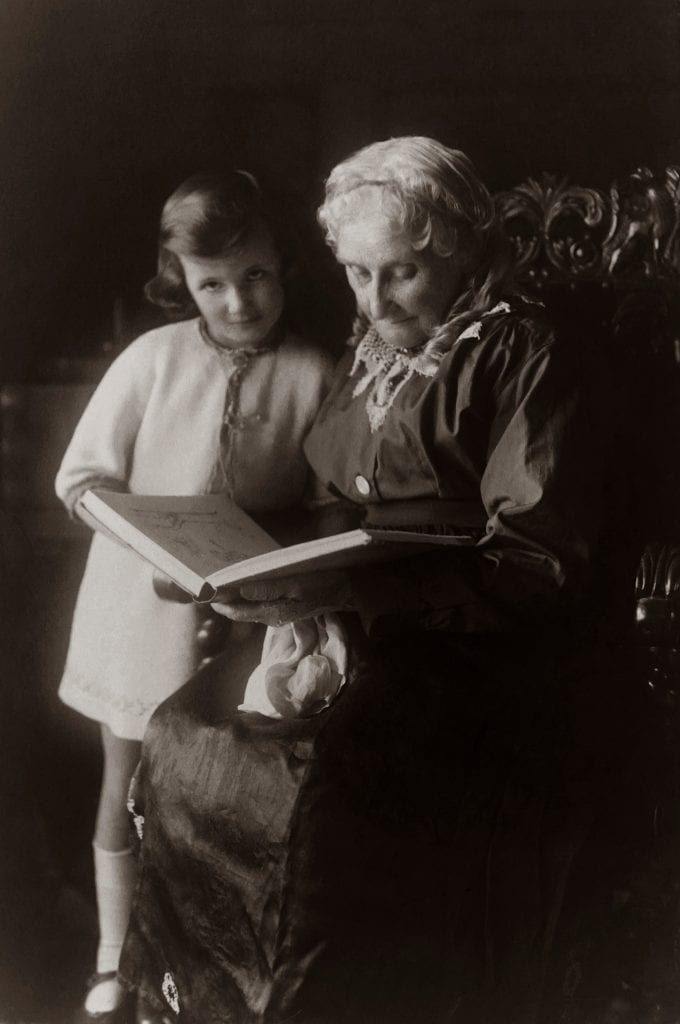Societal Human Values Series #5
Tibetan Emperor Songtsen Gampo, (Srong-brtsan-sgam-po), reigned 629-650 CE. Among his many achievements, he promoted a moral code known as the Sixteen Principles of Societal Human Values (mi chos gtsang ma bcu drug). As the Dalai Lama’s translator Thupten Jingpa writes, “Most of these sixteen values have to do with promoting greater societal well-being and living one’s life with dignity, honesty, and respect for others.”
Phakchok Rinpoche frequently emphasizes the importance of living respectfully in society. He encourages students to memorize and internalize these points of conduct as a core foundation for our practice of the Dharma. If we don’t keep this moral code, then whatever higher practices we engage in will be unlikely to bear much fruit.
This is the fifth in a series of explanations of these sixteen principles.
Principle # 5 Being respectful to those of high status and one’s elders (rik towa dang gen par kur ti chewa)
Respect
The Tibetan verb used here (bkur sti che ba) means “to honor or show respect.” In the emperor Songtsen Gampo’s code, we are reminded to honor or respect those who have higher status as determined by our specific culture. Before we do this, we need to think about what we mean by respect. The English word “respect” derives from Middle French and Latin roots. Translated literally, it means the act of looking back, which comes from respicere “to look back, regard,” or re- + specere “to look”.
Intentional Seeing

Therefore, respect initially meant to look or observe with intention. The word gained popularity in the sixteenth century, coming to mean “to treat with deferential regard or esteem, or regard with some degree of reverence.” When we respect someone, we look at them with care and intention, truly seeing that person. As Robin Dillion writes, “Respect is a particular mode of apprehending the object: the person who respects something pays attention to it and perceives it differently from someone who does not and responds to it in light of that perception.”1Dillon, Robin S., “Respect”, The Stanford Encyclopedia of Philosophy (Spring 2018 Edition), Edward N. Zalta (ed.), https://plato.stanford.edu/archives/spr2018/entries/respect/
The eighteenth-century German philosopher Immanuel Kant said that people should be treated as ends in themselves, never to be used as the means to an end; implying that all people are worthy of respect. Importantly, when we respect someone it does not necessarily mean that we agree with them or like them. But we “see” them. And likewise, in our study of the king’s ethical code, he asks that we see and acknowledge their position or their age. In this sense, western philosophers have also remarked that a person or object “deserves” or receives respect because of some quality from their side rather than from our subjective viewpoint.
Background: Acknowledging that Hierarchies Exist
Throughout human history, and even within other primate and animal cultures, scholars note that “social groups across species rapidly self-organize into hierarchies, in which members vary in their level of power, influence, skill, or dominance.”2Koski, Jessica E. et al. “Understanding Social Hierarchies: The Neural and Psychological Foundations of Status Perception.” Social Neuroscience vol. 10,5 (2015): 527-50. doi:10.1080/17470919.2015.1013223 Regardless of any ideals we may have for a world where every person or animal displays equal status and is treated exactly the same, this has never been the case. As Jessica Kosiki and her team note, “Despite [the] fact that there are always losers in this scenario, social hierarchies are highly pervasive across human cultures and they appear to emerge naturally in social groups.”3Koski, Jessica E. et al. “Understanding Social Hierarchies: The Neural and Psychological Foundations of Status Perception.” Social Neuroscience vol. 10,5 (2015): 527. doi:10.1080/17470919.2015.1013223
Some places and times have demonstrated greater social equality and fluidity than others, but we can observe that human groups automatically organize in either loosely or strictly defined hierarchies that all participants seem to understand. The accepted premise seems to be that as humans began to live together in groups they developed different status levels to bring benefit to the group as a whole.

People may attain higher status due to greater physical or mental prowess (depending upon the priorities of the culture), or greater financial resources. Within all types of societies people learn to defer to those who are perceived to have the power or ability to aid the larger social group. Cultural evolutionary theory demonstrates that within social groups people tend to select mates who are most similar to them, physically and in terms of status and behavior.4Creanza, Nicole et al. “Cultural evolutionary theory: How culture evolves and why it matters.” Proceedings of the National Academy of Sciences of the United States of America vol. 114,30 (2017): 7782-7789. doi:10.1073/pnas.1620732114. These factors contribute to stratified human societies, along with environmental factors, the introduction of new technologies, and educational opportunities.
Researchers tell us that humans use a variety of both visual perception skills as well as inferential or second-hand reporting to determine the relative status of individuals within a group. Once these factors are assembled (often in a very short time frame), we decide how to treat a certain individual. Different cultures report more or less hierarchical stratification, but all humans in society seem to adhere to these behaviors.
Respect Is A Choice

Philosophers have extensively examined the idea of respect and generally conclude that we make a cognitive choice to respect a person. But we also seem to develop different levels of respect. Kant outlined the difference between respect that involved the proper consideration of a worthy person, which he termed observantia, and a deeper sense of awe in the presence of someone more uplifting, which he termed reverentia.5Dillon, Robin S., “Respect”, The Stanford Encyclopedia of Philosophy (Spring 2018 Edition), Edward N. Zalta (ed.), https://plato.stanford.edu/archives/spr2018/entries/respect/ He also identified a more fear-based type of respect (respekt) that involves how we relate to dangerous people or things—we respect them by avoiding them. In our context, the king’s edict points to a sense of admiration or high evaluation of the person.

The first of these two, observantia, plays out in our mundane interactions when we acknowledge differences in social status, power, or position. We observe and generally accept that treating others with consideration is important. Traditionally people show politeness, admiration, or deference to those who occupy higher positions. And in most human societies people show respect to elders. When we treat those older than us politely, we acknowledge their experience and their abilities.
Respect and Egocentrism
Additionally, when we respect others, we loosen our self-attachment and absorption. As we pay attention to another person, we relinquish our egocentrism. For Buddhist practitioners that is a part of our path. If we treat others as more important than ourselves, we begin to gradually loosen the sticky attachment to our own wants, needs, and point of view. When we open up to respecting others, we reduce our pride. When we appreciate the qualities of others, we also feel less envious and jealous because we can rejoice in those talents.
Respect Means Living Harmoniously
Given these factors, if we live and operate within human society, it makes sense for us to behave so as to promote harmony and consideration for others. When we think, act, and speak politely, people around us tend to mirror that behavior. The atmosphere lightens, and all parties can relax.

Contrary to some opinions, we don’t lose any dignity if we treat others respectfully. Respect means behaving courteously—and courtesy enhances our dignity. But it does not imply that we blindly follow or act polite in a phony way to those who do not deserve respect. And respect also should never be confused with manipulative behavior or deceit. When we respect our elders and those in positions of authority, we acknowledge qualities and experience, and we may even find behaviors we wish to emulate! In our youth-oriented culture in which we value newness and trendiness, we sometimes stop paying attention to those who have seen trends come and go before.
Reflection Exercise

In the next few weeks, take a few minutes several times a day to carefully observe someone in a higher position—a boss, or an important figure in your own community. What qualities does that person embody? What experiences have they had, or what skills have they mastered? What can you learn from that person? It may help to keep a journal where you note down your observations. Does your boss have great people skills or know how to run meetings effectively? How could you benefit from watching her work?
Think about those who you have benefitted from in the past—a teacher, a coach, an older sibling or cousin, or a mentor. What did that relationship teach you? Rejoice in the generosity of these people and think of them with respect. When you contemplate those who have helped you in the past or who embody qualities that you appreciate, your respect will automatically grow.
Similarly, take time to talk with older people in your life—they can be family members or mere acquaintances. Ask them their opinion about something that matters to them or to you—and really listen to the answer. You may be surprised at the wisdom that reveals itself. Even if you disagree strongly with their point of view, can you take the time to reflect on why they might feel differently? Can you treat their opinion with respect and not with anger or dismissal?
Reflection Question
Have you had a meaningful exchange with an elder or a person in a higher position that has changed you for the better? What was the situation, and how did you develop respect for that individual?










Responses